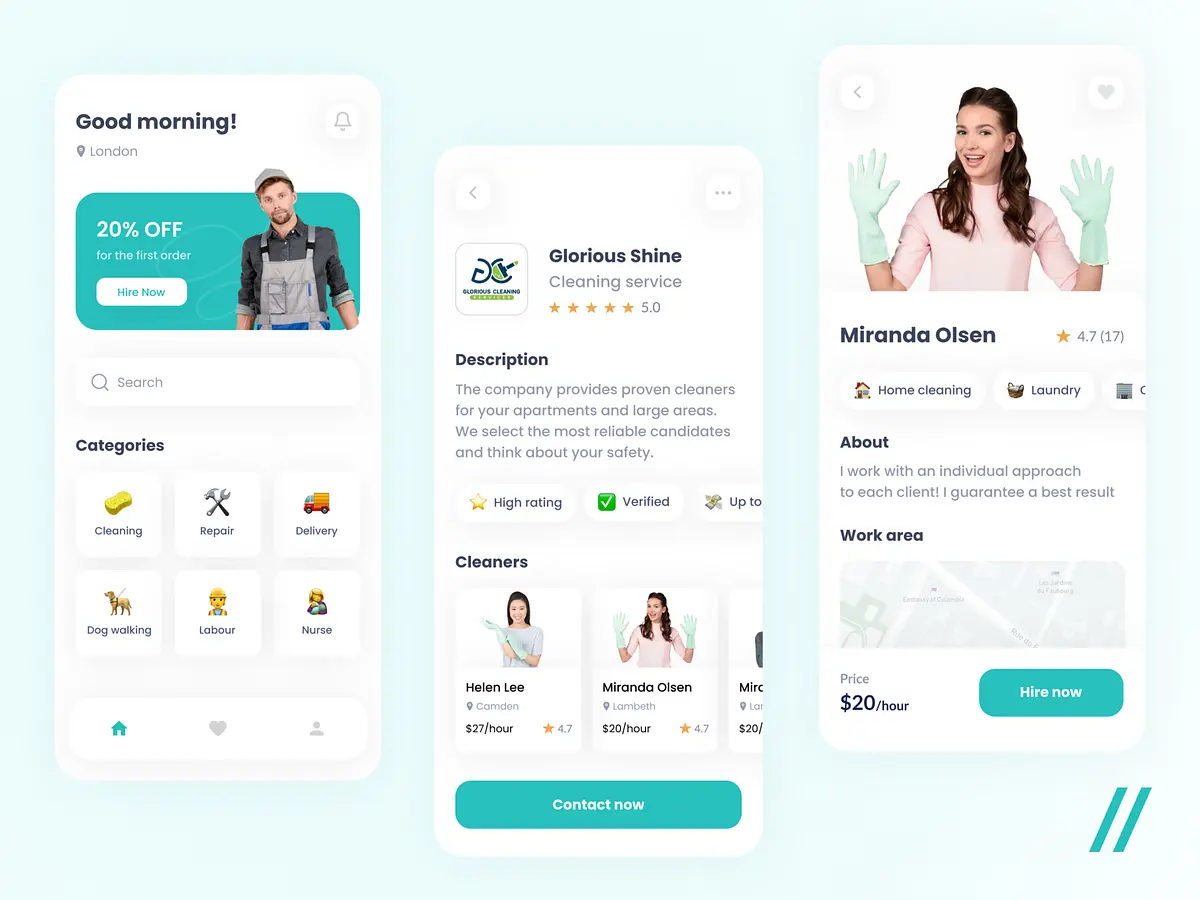Healthcare Cloud Computing – A Comprehensive Guide


Discover how cloud computing is revolutionizing the healthcare sector. Learn about its importance, advantages, challenges, and uses in modern healthcare settings.
Healthcare cloud computing uses remote computers, frequently hosted online, to store, manage, and process healthcare-related applications and data. Healthcare businesses can use cloud computing to access resources and services on-demand rather than only relying on local infrastructure and on-site servers.

What is cloud computing in healthcare?
Who Can Benefit from Cloud Computing:
For Hospitals
Hospitals rely on medical cloud computing as an essential component for enhancing operational effectiveness and patient care. Cloud-based technologies enable hospitals to optimize resource allocation, streamline administrative procedures, cut expenses, and improve patient experiences. This process includes the seamless management of electronic health records (EHRs). By reducing administrative costs, this digital transformation enables hospitals to concentrate more on their primary goal of providing excellent care.
For Doctors
By putting accuracy, cooperation, and insights at the center of healthcare delivery, cloud computing redefines the practice of medicine. Real-time access to patient data, diagnostics, and treatment history provides doctors with the information they need to make accurate diagnoses and evidence-based decisions. Geographical boundaries are removed by cloud-powered collaboration tools, allowing for expert consultations and interdisciplinary interaction. Additionally, cloud-enabled analytics reveal trends and patterns in patient populations, giving doctors knowledge they can use to improve patient outcomes and treatments.
For Patients
Patients now have unprecedented access to their medical histories and treatment plans because of safe and convenient electronic health data in the cloud. This openness encourages educated choice-making and empowers people to participate in health care actively. Through simple access to medical knowledge and remote monitoring for chronic diseases, cloud-based telehealth services help patients live healthier, happier lives.

Infrastructure as a Service (IaaS)
IaaS provides the core components of cloud computing solutions for business, including virtualized servers, storage, and networking resources. Electronic health records (EHRs) and medical photographs can be safely stored and retrieved thanks to IaaS, which facilitates the seamless development of data storage capacity in the healthcare industry.

Platform as a Service (PaaS)
PaaS makes healthcare application development and deployment easier because no complicated infrastructure management is required. Medical software developers use PaaS to build cutting-edge products like telemedicine systems and patient portals that promote improved patient interaction.
Learn more: Healthcare IT Solutions

Software as a Service (SaaS)
Through the cloud, SaaS provides healthcare practitioners with ready-to-use software. SaaS solutions that simplify administrative work and enhance patient management include EHR systems, billing and scheduling software, and practice management tools.

Public Cloud
Third-party service providers host public cloud services, which are accessed online. Healthcare firms use public cloud services to host applications, store data, and collaborate economically. This type enables safe remote access to patient data.

Private Cloud
Private cloud environments can give healthcare businesses better control and security over their data. This feature is because private clouds are exclusively used by a single company, offering enhanced protection for sensitive healthcare information. Private clouds get preferred for meeting regulatory standards, like HIPAA, when storing and managing healthcare data.

Hybrid Cloud
Healthcare cloud computing companies can balance data security and scalability by utilizing hybrid clouds, which combine elements of public and private clouds. With hybrid cloud solutions, critical patient data can be stored on-premises, while less-sensitive activities can use public cloud resources.

Clinical Clouds
Clinical clouds, designed expressly for clinical trials and healthcare research, make it easier to store, analyze, and share patient data between institutions securely and competently. These customized cloud technologies promote cooperative breakthroughs in medical research and speed it up.

Disaster Recovery as a Service (DRaaS)
DRaaS ensures data continuity in the event of system malfunctions or natural disasters. Healthcare organizations use this cloud computing to ensure constant access to vital patient records and uninterrupted medical treatment.
Healthcare industry at TECHVIFY:
Harness the power of cloud computing in the healthcare sector through these advantages. Collaborate with TECHVIFY to elevate your business to new heights.
Cost-effectiveness
Healthcare firms can maximize resource consumption by migrating from conventional on-premises data centers to the cloud. Healthcare organizations can now direct funding away from expensive infrastructure maintenance and toward patient care, innovation, and research.
Intelligent insights
By seamlessly integrating cutting-edge technologies like machine learning and artificial intelligence, cloud computing makes it possible to draw intelligent conclusions from vast amounts of healthcare information. These technologies reveal detailed patterns, hidden trends, and significant correlations in the data through complex analytics and algorithms. Combining cutting-edge technology and cloud-powered analytics gives healthcare workers practical tools for making data-driven decisions. To improve patient experiences and medical effectiveness, doctors may now predict health outcomes, customize therapies, and fine-tune care plans.
Accurate decision-making and treatment
Using cloud computing in healthcare opens new possibilities for precision decision-making and care. Medical professionals get immediate access to complete patient data, ensuring precise diagnosis and individualized therapies. Using cloud-enabled solutions, medical professionals can optimize treatment plans, reduce medical errors, and improve patient outcomes. Incorporating the cloud transforms healthcare by promoting a culture of accuracy that permeates the patient’s path to well-being.
Flexibility
A key characteristic of healthcare cloud computing’s impact is flexibility. Due to its agility, healthcare systems can easily adjust to changing needs, cope with unexpected patient data spikes, incorporate new technology, and scale resources as necessary. Healthcare institutions can respond quickly to changing patient requirements and technological developments by being flexible.
Transparency
The healthcare ecosystem will become more open and integrated due to cloud computing. Direct access to detailed medical records empowers patients and encourages proactive engagement in their wellness journey. In addition, cloud-driven networking quickly fills the gap between researchers and healthcare practitioners. This harmonious interaction makes the effortless interchange of insightful knowledge, ground-breaking scientific discoveries, and specialized expertise possible. This group effort encourages innovation, improves treatment techniques, and sets the path for a comprehensive strategy for the well-being of patients.
Security and privacy
One of the biggest challenges of implementing cloud computing in healthcare is ensuring the security and privacy of patient data. With sensitive information being stored on remote servers, there is a risk of data breaches and unauthorized access. Additionally, healthcare organizations must ensure that their cloud providers comply with regulatory requirements such as HIPAA and GDPR.
Connectivity capacity
Another challenge is the need for reliable internet connectivity, as any interruptions in service can disrupt critical healthcare operations.
Adoption education
Finally, there may be resistance from healthcare staff who are unfamiliar with cloud technology or who fear job displacement due to automation. Despite these challenges, cloud computing has the potential to improve healthcare efficiency, reduce costs, and enhance patient outcomes.
The adoption of healthcare cloud computing is proof of technology’s limitless possibilities. Its integration is rewriting the present and defining the future, setting the way for a day when healthcare is more intelligent, flexible, and exquisitely patient-centered. As we move forward, cloud computing will remain the compass, revealing a route to greatness in healthcare, propelled by innovation, compassion, and an unshakable dedication to the welfare of people everywhere.
Ready to explore the possibilities of cloud computing and face the challenges with the help of top experts? Discover the potential with our end-to-end services at TECHVIFY today.


Table of ContentsI. What is cloud computing in healthcare?II. The Importance of Cloud Computing in the Healthcare IndustryIII. Types of Cloud Computing Solutions in Healthcare1. Infrastructure as a Service (IaaS) 2. Platform as a Service (PaaS) 3. Software as a Service (SaaS) 4. Public Cloud 5. Private Cloud 6. Hybrid Cloud 7. Clinical Clouds 8. Disaster Recovery as a Service (DRaaS) IV. Key Benefits and Challenges of Cloud Computing in Healthcare1. Key Benefits2. ChallengesConclusion Technological advancements are paving new paths for companies across different sectors, and the logistics industry is no exception. According to a survey by Gartner, 87% of supply chain professionals plan to invest in enhancing…
26 July, 2024

Table of ContentsI. What is cloud computing in healthcare?II. The Importance of Cloud Computing in the Healthcare IndustryIII. Types of Cloud Computing Solutions in Healthcare1. Infrastructure as a Service (IaaS) 2. Platform as a Service (PaaS) 3. Software as a Service (SaaS) 4. Public Cloud 5. Private Cloud 6. Hybrid Cloud 7. Clinical Clouds 8. Disaster Recovery as a Service (DRaaS) IV. Key Benefits and Challenges of Cloud Computing in Healthcare1. Key Benefits2. ChallengesConclusion The technology sector is advancing at an unprecedented pace, and the HR landscape is evolving right alongside it. To attract top talent, HR professionals and organizations need to stay ahead of emerging technology hiring…
25 July, 2024

Table of ContentsI. What is cloud computing in healthcare?II. The Importance of Cloud Computing in the Healthcare IndustryIII. Types of Cloud Computing Solutions in Healthcare1. Infrastructure as a Service (IaaS) 2. Platform as a Service (PaaS) 3. Software as a Service (SaaS) 4. Public Cloud 5. Private Cloud 6. Hybrid Cloud 7. Clinical Clouds 8. Disaster Recovery as a Service (DRaaS) IV. Key Benefits and Challenges of Cloud Computing in Healthcare1. Key Benefits2. ChallengesConclusion Customized software plays a major role in managing various tasks within the telecom industry. It is essential for allocating numbers to subscribers and managing networks through optimized and AI-enabled routing protocols. Additionally, it aids…
24 July, 2024


Thank you for your interest in TECHVIFY Software.
Speed-up your projects with high skilled software engineers and developers.
By clicking the Submit button, I confirm that I have read and agree to our Privacy Policy